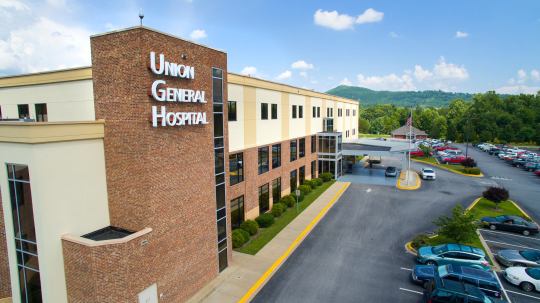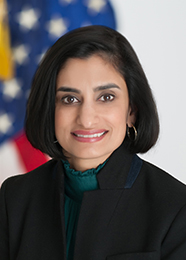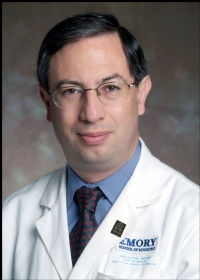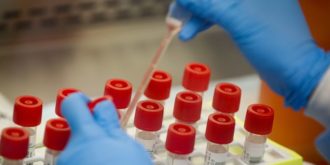Many rural hospitals in Georgia have received federal grants in the past day to soften the financial impact from the COVID-19 pandemic, an industry association says.
Union General Hospital and Chatuge Regional Hospital, along with a group of physician practices, got close to $2 million, said Kevin Bierschenk, CEO of the system that runs those hospitals, located in North Georgia.
The money “does a lot,’’ he said Friday. The health system has seen a 50 percent drop in revenues during the COVID-19 crisis, he said, citing the loss of elective surgeries and procedures.

The hospital money comes from the CARES Act, passed by Congress in March. The legislation created a $100 billion health care fund.
The first wave of money will come in grants to hospitals based on their Medicare revenue, with “no strings attached,’’ Seema Verma, administrator of the Centers for Medicare and Medicaid Services, said this week.
“This is a tremendous infusion of cash to bridge the losses that are occurring in preparation for the surge’’ of COVID-19 patients, said Jimmy Lewis, CEO of HomeTown Health, an organization of rural hospitals in the state, who alerted GHN to payments to hospitals that came overnight.
According to the Kaiser Family Foundation, hospitals under the grant program can apply for money for a range of coronavirus-related expenses, including construction of temporary structures and medical supplies. Hospitals cannot use this funding for expenses for which they will receive or are seeking other reimbursement.
Kaiser Health News reported Friday that the first $30 billion of the emergency fund will be doled out based on 2019 Medicare reimbursements, and not a state’s number of COVID-19 cases. So effectively, some states will get more than $300,000 per case while hard-hit New York gets just $12,000 per case. According to the KHN analysis, Georgia will get $72,000 per COVID-19 case.
Meanwhile, some physicians in Georgia are receiving advanced Medicare payments, said Fay Fulton of the Georgia Academy of Family Physicians. These funds are basically an advance on their earnings for treating Medicare patients.

“Health care providers are making massive financial sacrifices to care for the influx of coronavirus patients,” Verma said in a statement.
“Many are rightly complying with federal recommendations to delay non-essential elective surgeries to preserve capacity and personal protective equipment,’’ she said. “They shouldn’t be penalized for doing the right thing. Amid a public health storm of unprecedented fury, these payments are helping providers and suppliers ― so critical to defeating this terrible virus — stay afloat.”
The federal help has inspired private insurers such as UnitedHealth Group and several Blue Cross Blue Shield plans to offer advanced payments and other financial support, Kaiser Health News reported.
Here’s a GHN article on the financial pressures many physicians are feeling.
Worst-case scenario may be avoided
The Georgia Department of Public Health reported Friday evening that there have been 11,859 cases of COVID-19 in the state, with 425 deaths. Of those fatalities, 68 have come in Dougherty County, the hardest-hit community in the state.
Still, the overall toll in Georgia looks better than first forecast because of social distancing, said Dr. Carlos del Rio, an infectious disease expert at Emory University School of Medicine. “That is great news.’’
“We’re not having our hospitals being overwhelmed like New York. If you overwhelm hospitals, the mortality will go up. ‘’
Del Rio said mortality from COVID-19 has been higher in France because its ICUs have been flooded with patients, while staffing has not been sufficient to handle the special, labor-intensive care that the patients need.
Speeding up the testing process
Delays in getting COVID-19 test results are still a problem, del Rio said. “I’m worried about that,’’ he said.

More rapid tests are appearing in Georgia and elsewhere – including a site at Georgia Tech. And Emory as well as hard-hit Phoebe Putney Hospital in Albany are able to turn around a test in a day.
But lags of several days in learning test results have hampered the fight against the pandemic. Because a hospital must treat a suspected case as “positive” until the test proves negative, vital personal protective equipment has sometimes been wasted on people who were not infected. On the other side of the coin, delayed test results on people who actually are infected can lead to further transmission of the disease, del Rio added.
Delays of several days to get test results “is clearly not acceptable,’’ he said.
The New York Times reported earlier this week national companies Quest Diagnostics and LabCorp have acknowledged that their labs around the country were overwhelmed.
Quest’s backlog is 80,000, according to the company, down from 160,000 on March 25, the Times reported Monday. LabCorp says it has caught up, and now has a turnaround of four to five days from pickup.

Dr. Dan Singleton, a family physician in rural Buena Vista, said test results are coming back to his practice now in three days. When testing first started, though, results of COVID-19 testing took 11 days.
That may have been a factor in the death of a Schley County man, he said.
The man’s wife was tested and waited days at home for the results. After seven days, she was hospitalized. Her test eventually came back positive after an 11-day wait.
But after she was discharged, her husband suddenly died of COVID-19. “I think he caught it from her,’’ Singleton said. A rapid test result could have led the woman to isolate herself, he said.
“Until we have reliable testing [results] within 24 hours, it’s going to be really dangerous to return to life as normal,’’ Singleton said.

